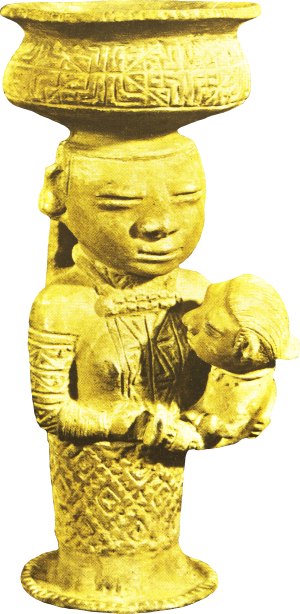

Perfect through Suffering
It is a common idea that the pathway of faith is strewn with flowers and that when God interposes in the life of His people, He does it on a scale so grand that He lifts us out from the plane of difficulties. The actual fact, however, is that the real experience is quite contrary. It is only when we come to trust God that we meet with trials and difficulties. The story of the Bible is one of alternate trial and triumph in the case of everyone of the cloud of witness from Abel down to the latest martyr.
Look at the patriarchal story. Abraham went out, believing God to meet the promise of a glorious inheritance, but the first thing he found was famine and desolation in the land of promise, compelling him to go down to Egypt for his very subsistence. His whole life was a story of narrow places and painful testing, and every blessing was wrung, as it were, from the very jaws of difficulty and natural impossibility.
Still more was Isaac's, a suffering life. Petty trials marked the whole pathway of the patriarch. His very wife was selected for him by another. His favorite son became a disappointment. The very wells he dug in the desert became a source of jealous contention, and he was pushed from place to place until his steppings were marked by the very names which recall only associations of pain and sorrow.
Jacob's life was one long scene of testing, and looking back even from the sunlight of his closing and happier days, he could only say in retrospect, “Few and evil have the days of the years of my life been.”
Above all the patriarchal family, Joseph seemed born for trial. The opening vision of his faith was bright as heaven, but soon it was darkly clouded by treachery and crime on the part of his very brethren, long years of exile, ignominy, unjust suspicion, and protracted suspense until, at last, “the iron entered into his soul,” and his deliverance, when it came was like Paul's escape from shipwreck, through the most trifling providential incidents.
So Moses passed through a narrow place of difficulty and bitter trial, and his very choice is described as a lot of “affliction with the people of God.”
David, Israel's great king, and Christ's glorious type, even after he was promised the throne and anointed king, was hunted as a partridge in the mountains of Judah, and compelled to flee from refuge to refuge in the caves and deserts, and narrowly saved again and again, as Job expresses it, “by the skin of his teeth.”
But need we go further than the great Example Himself, whose name is the “Man of Sorrows,” whose life was made “perfect through sufferings”; who in very infancy was compelled to flee from Herod's bloody hand to Egypt for protection, and who could not be spared by bitter agony of the garden and the cross in the accomplishing of our redemption?
Like Him, the great Apostle Paul was more than anything else an example of how much a child of God can suffer without being crushed and broken in spirit. The apostle seems to have been set forth as a “gazing stock to angels and to men,” of the possibility of human endurance sustained by the grace of God, and many of his trials were just like this last scene in the book of Acts, so petty, so slow, so tedious, so commonplace, that there is nothing of the color of romance about them, but they are more like a scramble for life.
The very first experience after his conversion was of this character. On account of his testifying for the Lord Jesus in Damascus, he was hunted down and obliged to flee for his life. But we behold no heavenly chariot transporting the holy apostle amid thunderbolts of flame from the reach of his foes, but “through a window in a basket” was he let down over the walls of Damascus, and so escaped their hands. In an old clothes basket, like a bundle of laundry, the servant of Jesus Christ was dropped from the window and ignominiously fled from the hate of his foes.
So again, we find him left for months in lonely dungeons; we see him walking on foot along the shores of the Aegean Sea; again we find him telling of his watchings, his fastings, and his desertion by friends, of his brutal and shameful beatings before an insulting rabble; and here, even after God has promised, by a heavenly vision, to deliver him, we see him for days left to toss upon a stormy sea, obliged to stand guard over the treacherous seamen, and tell them that their presence is indispensable for the escape of the passengers. And, at last, when the deliverance comes, there is no heavenly galley sailing from the skies to take off the noble prisoner; there is no angel walking upon the waters and stilling the raging breakers; there is no supernatural sign of the transcendent miracle that is being wrought; but one is compelled to seize a spar, and another a floating plank, and another climb on a fragment of the wreck, and another to strike out and swim for his life, and so the strange commonplace story reads, “some on boards, and some on broken pieces of the ship. And so it came to pass, that they escaped all safe to land.”
Beloved, here is God's pattern for our own lives. Here is a gospel of help for people that have to live in this everyday world with real and ordinary surroundings, and a thousand practical conditions which have to be met in a thoroughly practical way. God's promises and God's providences do not lift us out of the plane of common sense and commonplace trial, but it is through these very things that faith is perfected, and that God loves to interweave the golden threads of His love along with the warp and woof of our everyday experience. It is most helpful to us to realize that we have a God who thus comes into the most commonplace things and that it is not evidenced that He has failed us if He allows ten thousand difficulties on every side to throng us, and deliver us in answer to prayer at last, by the very narrowest margin, and through straits so narrow that we seem to be barely delivered at the very point of disaster and from the very jaws of destruction.













